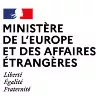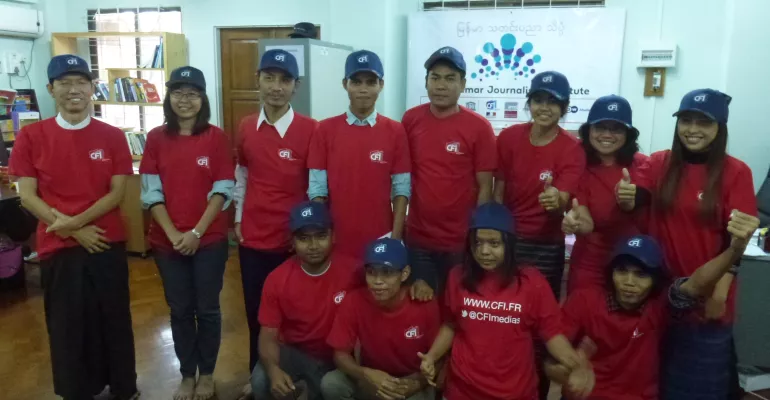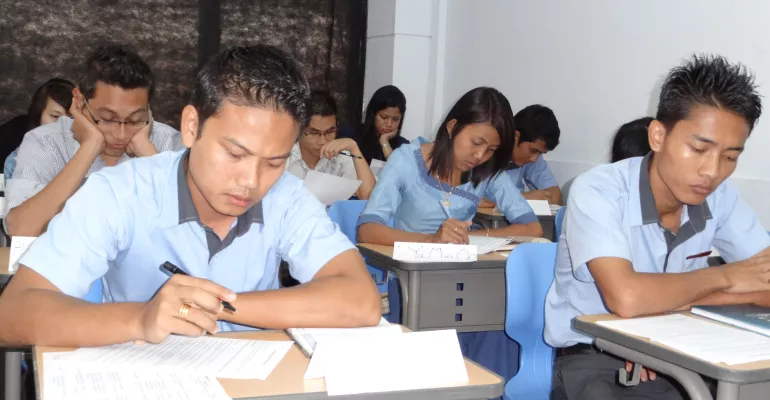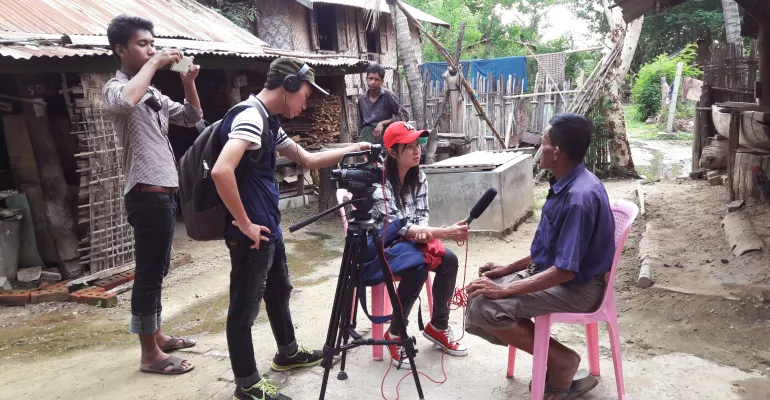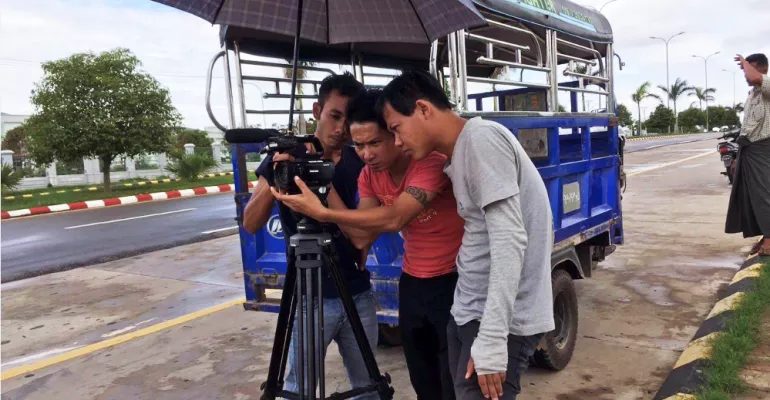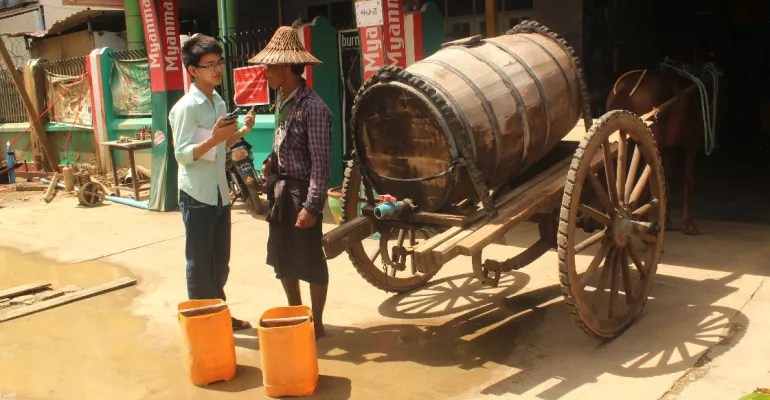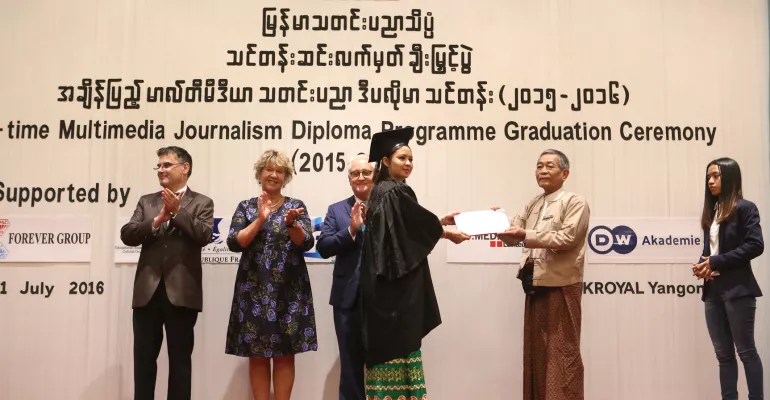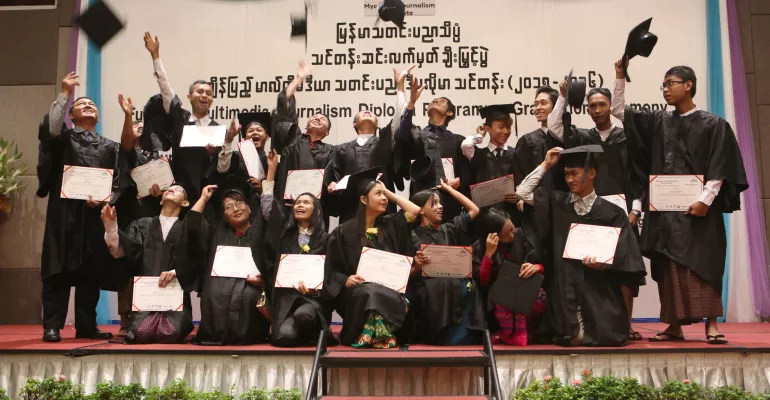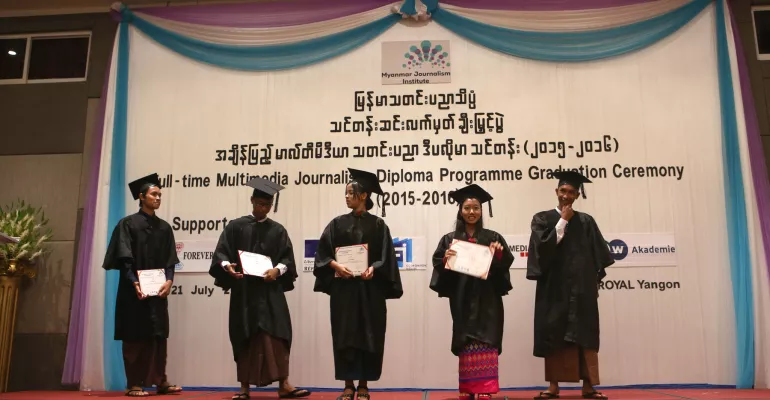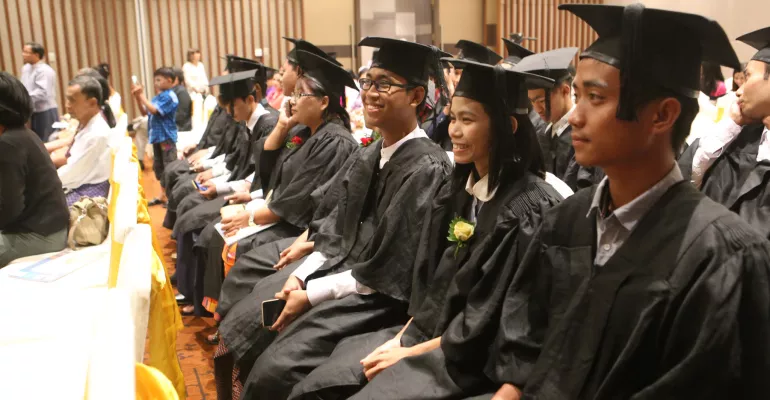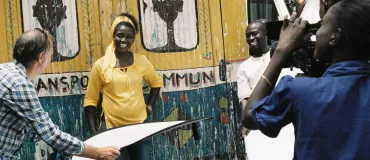Setting up the Myanmar Journalism Institute
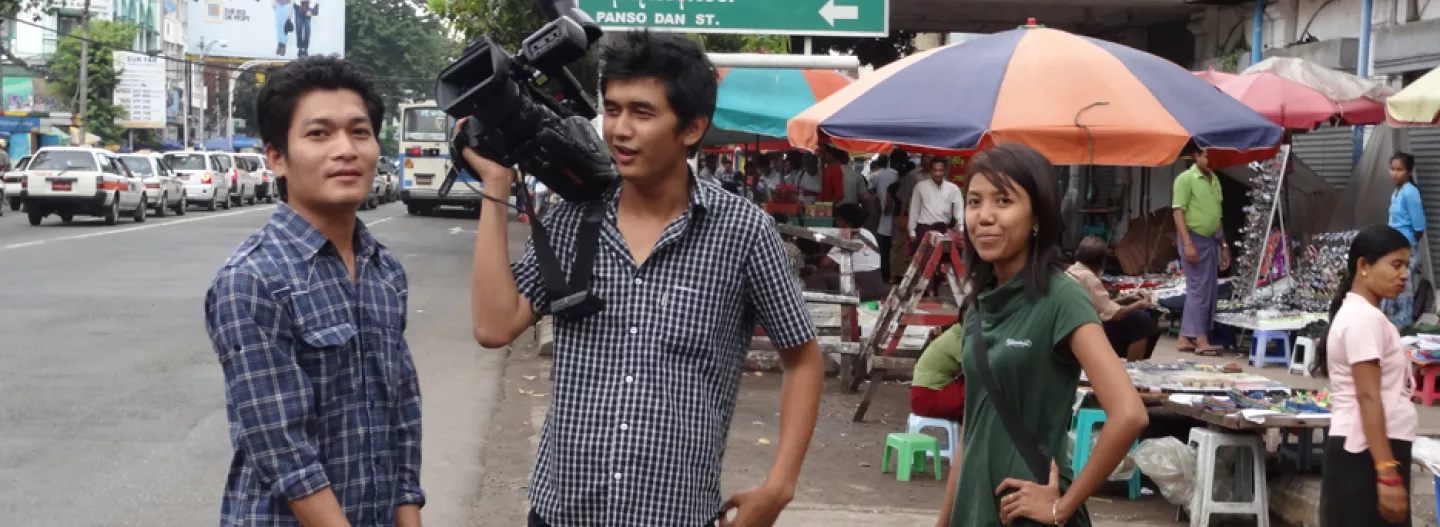
Goals
Presentation
In 2011, the coming to power of a new government marked the beginning of a democratic process in Myanmar. Among the reforms undertaken was a law on freedom of the press, promoting the emergence of new media in the national arena.
In parallel with the liberalisation of the sector, and at the request of the Burmese authorities, an independent school of journalism has been launched by a European consortium in partnership with the Burmese media group "Forever".
Each partner brings its experience and expertise to the project: FoJo in the field of university education, DWA in the establishment of the internal organisation and in technical areas such as e-learning, IMS in governance, CFI and the Embassy offer their experience in the field, the transfer of skills, such as the training of trainers, and ensure students come from a wide variety of backgrounds through the provision of scholarships. This major project is open to all media and is based upon consultation and the participation of all local stakeholders (Ministry of Information, journalists' associations, press groups and organisations, universities, NGOs).
Myanmar Journalism Institute offers professional quality education that meets international standards – compliance with ethical rules, neutrality, pluralism and methodology of investigation – focusing on two areas: training for working journalists and entry-level training for students. It provides training for media professionals who play a part in strengthening democratic processes and good governance.
Project beneficiaries
- Journalists working in the print press, radio, television and online with no real training, who wish to improve their skills
- Journalism students who want to receive teaching that meets international standards
Actions
Creation of a sustainable, functional training structure
The legal structure of MJI is established in accordance with national laws, the by-laws and rules of procedure are drawn up, the budget is approved and the management board is elected.
A small management team is formed and trained, while the recruitment procedures for the hiring of administrative and operational staff are defined. The team thus formed, together with a technical expert, creates the management, support and communication tools.
A team of eight Burmese trainers is established and these trainers themselves attend a cycle of six training sessions.
Lastly, the school's educational team, the international partners and the managers of the Burmese media align the courses offered by the institute with the needs of local media.
Training for a new generation of journalists
The first three months of 2014 are dedicated to the selection of 60 students.
A short educational course (12 academic months) is established to provide comprehensive training. 60 candidates are recruited and trained over two years, 15 per year in Rangoon and 15 per year in Mandalay. In the 2014-2015 school year, 30 students begin the training course for working journalists.
Practice makes perfect for the students at the Myanmar Journalism Institute (MJI)
First graduation ceremony at the Myanmar Journalism Institute (MJI)
Out and about in Nay Pyi Taw, on reporting assignments with students from the Myanmar Journalism Institute (MJI)
Strengthening the skills of working journalists
Fifteen modules, with 12 journalists per module, are organised for the professional training, for an intensive cycle taught in Burmese. Journalists are selected through a call for applications.
An Election Reporting course is offered by MJI in addition to the professional training curriculum. These classes prepare journalists to cover the general elections which are so essential for Burmese democracy (late 2015). This training is provided across the region to reach journalists outside of the major urban centres.
Congratulations to the latest set of MJI graduates!
Forty journalists in training at the Myanmar Journalism Institute, Rangoon
Foster diversity in the media, to reflect the various segments of the population
For the first year of this short course of professional training, 28 grants are awarded to students on the basis of proximity, accommodation and travel requirements. The following year more emphasis is placed on students from disadvantaged backgrounds, in particular in terms of ethnicity. These grants are managed by the Embassy of France.
The project was implemented between July 2014 and June 2018. It intervened at a critical moment in Myanmar history, characterised by unprecedented perspectives of openness, although marred with uncertainties about the sustainability and the extent of the political, economic and legal changes that had been initiated.
The school management team is in place. It received adequate training to be autonomous. The definition of tasks and the development of the organisation chart lacked clarity and caused overlaps and confusion. Although lots of progresses have been achieved, further clarifications on each position’s areas of responsibility is missing.
The impact of the MJI’s training on the education system and the professionalisation of journalists is promising. The overly ambitious goal of achieving international standards, opened a new horizon. But the coordination constraints between partners and the lack of data collection about the student profiles by the MJI, prevent to better appraise this impact.
Final evaluation

